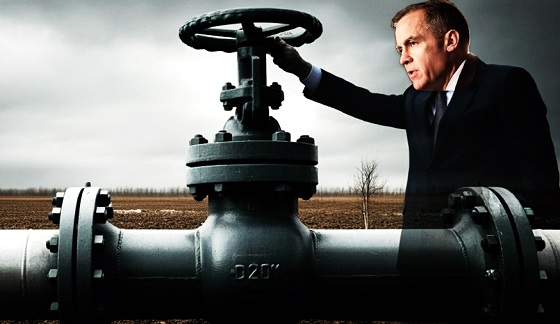Energy
Affordable Energy: Everything you need to know about energy and the environment
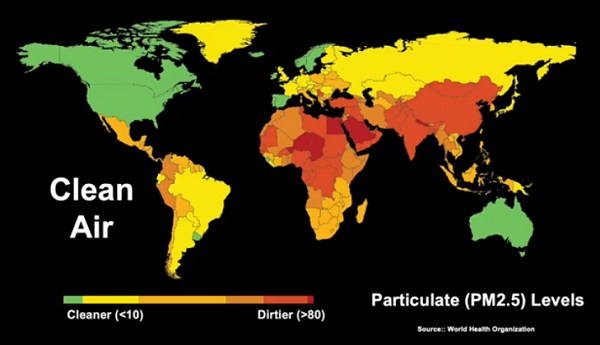
The Dual Challenge: Energy and Environment
Scott Tinker
The world faces two important and interrelated challenges. Affordable and reliable energy for all, and protecting the environment. The energy-environment challenge is not simple, but it is solvable if we understand and address the complex fabric of energy security, scale of energy demand, physics of energy density, distribution of energy resources, interconnectedness of the land, air, water and atmosphere, and the extreme disparity in global wealth and economic health. The truth is that there are no good and bad, clean and dirty, renewable and nonrenewable energy sources. They all have benefits, and they all have challenges. Climate change is an important issue, but it is not the only environmental issue. Solar and wind are important low carbon solutions, but they are only part of the solution. We must put our best minds to the task of addressing the dual challenge, working together to better the world.
Business
Ottawa must listen to the West
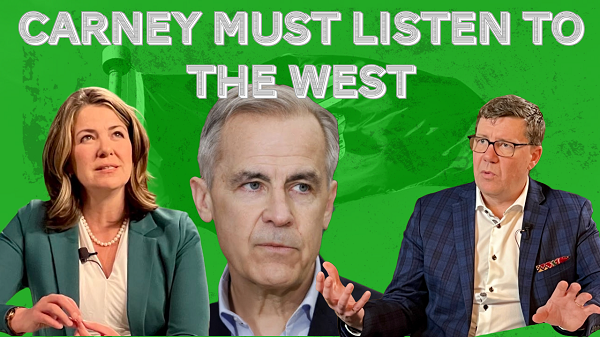
If Prime Minister Mark Carney doesn’t listen to the West, it’s going to cost Canada.
Alberta Premier Danielle Smith and Saskatchewan Premier Scott Moe are demanding that Ottawa stop stomping on their provinces’ natural resource production.
Smith is telling Carney to scrap the no more pipelines law, Bill C-69, lift the cap on Alberta’s energy and cancel the looming ban on the sale of new gasoline and diesel vehicles.
Moe is stepping in sync with Smith, listing Saskatchewan’s demands in a letter, calling for changes to the no more pipelines law, saying, “there are a few policies that are going to have to go.”
Moe is also taking aim at the industrial carbon tax saying “the tax can’t be charged on the electricity for Saskatchewan families.”
The new prime minister says he’s listening.
“I intend to govern for all Canadians,” said Carney in his election victory speech.
If that’s true, Carney must heed the demands of Smith and Moe, because Ottawa’s anti-West policies are damaging the economy and costing taxpayers a truckload of money.
How much?
Ottawa’s cap on oil and gas emissions – which creates a cap on production – will cost the Canadian economy about $20.5 billion and slash 40,000 jobs by 2032, according to the Parliamentary Budget Officer.
Canada has also seen nearly $670 billion in natural resources projects suspended or cancelled, since 2015.
To put that kind of money into perspective: $670 billion would pay for the salaries of hundreds of thousands of paramedics and police officers, for a decade.
That’s the equivalent to the value of more than one million houses in Alberta or almost two million homes in Saskatchewan.
That kind of money is worth the entire income tax bills for the populations of Alberta, Saskatchewan and Manitoba for about 10 years.
That’s just the lost money from natural resources.
Carney’s looming ban on the sale of new gasoline and diesel vehicles also has a huge price tag.
Canada’s vehicle transition could cost up to $300 billion by 2040 to expand the electrical grid, according to a report for Natural Resources Canada.
If Carney is serious about boosting the economy and governing for all Canadians, getting the government out of the way of natural resource projects and scrapping the expensive plan to stop people from buying new gas and diesel vehicles is a good first step.
The West has been firmly asking for Ottawa to mind its own business for years.
Cancelling the industrial carbon tax is another way for Carney to show that he’s serious about growing the economy and governing for all Canadians.
On the same day Carney scrapped the consumer carbon tax, the Saskatchewan government dropped its industrial carbon tax down to zero.
“By eliminating industrial carbon costs which are often passed directly on to consumers – the province is acting to protect affordability and economic competitiveness,” said the Saskatchewan government’s news release.
Alberta’s industrial carbon tax is now frozen. Increasing the tax above its current rate would make Alberta “exceptionally uncompetitive,” according to Alberta Environment Minister Rebecca Schulz.
Business groups in both provinces lauded each premier, saying it would make their industries more competitive and help bring down costs.
When Ottawa forces businesses like fuel refineries or fertilizer plants to pay the carbon tax, they pass on those costs on to taxpayers when they heat their homes, fill up their cars and buy groceries.
If companies are forced to cut production or leave the country because of the industrial carbon tax and policies like the energy cap, it’s regular Albertans and Saskatchewanians who are hurt the most through job losses.
If Carney intends to govern for all Canadians he needs to listen to Smith and Moe and scrap these policies that are set to cost taxpayers billions and slash tens of thousands of jobs.
Kris Sims is Alberta Director and Gage Haubrich is Prairie Director for the Canadian Taxpayers Federation.
Economy
Governments across Canada should prioritize energy infrastructure—including pipelines
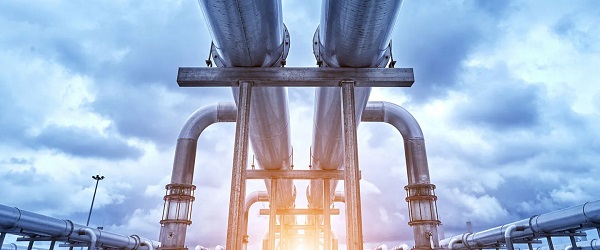
From the Fraser Institute
By Tegan Hill and Elmira Aliakbari
In a recent meeting with Prime Minister Mark Carney, the provincial premiers discussed major infrastructure and energy projects to be fast-tracked through a new federal approval process. While the general sentiment was that the meeting was productive and collaborative, the British Columbia government seemingly shot down Alberta’s proposed pipeline to B.C.’s northern coast. This political resistance to new pipeline infrastructure overlooks the positive potential impact such projects could have for Canada and beyond.
Prime Minister Carney plans to table legislation that would create a new major projects office tasked with reducing approval times from five to two years, among other measures. Major projects must meet numerous criteria before deemed in the “national interest” and expedited. The premiers have compiled a short-list of projects for consideration though the full list has not been publicly released.
Alberta Premier Danielle Smith’s proposed pipeline would transfer bitumen to the Port of Prince Rupert in B.C., which would open up access to Asian markets. B.C. Deputy Premier Niki Sharma, who attended the recent meeting in place of B.C. Premier David Eby, said the proposal has “no proponent” at this stage and that her government plans to focus on “shovel-ready projects.”
And it isn’t just the Eby government resisting the project—Steven Guilbeault, a member of Carney’s cabinet, recently dismissed the need for additional pipeline infrastructure, including to B.C.’s coast, based on incorrect information about the Trans Mountain pipeline’s capacity and future oil demand.
Again, this political resistance ignores key facts about Canada’s energy sector, including our current overreliance on a single customer. Currently, 97 per cent of our oil exports go to the United States. This heavy reliance on the U.S. market has made Canada vulnerable to U.S. policy changes, as highlighted by the recent threat of tariffs on Canadian energy. Expanding pipeline infrastructure—both westward, as proposed by Premier Smith, and eastward—would help us diversify our export market and allow Canada to reach customers in Asia and Europe.
And pipeline expansion is not just about exports; it’s also about enhancing energy security at home. Some parts of our country, namely Ontario and Quebec, remain heavily dependent on U.S. pipelines to meet their energy needs. Specifically, due to the lack of an west-east pipeline dedicated to oil, for more than 70 years Canadian oil extracted in Alberta has passed through the U.S. via Enbridge’s network before returning to Ontario.
Finally, this discussion shouldn’t be limited to oil. There is and will continue to be strong demand for liquefied natural gas (LNG) in many parts of the world, including in Asia, for many years to come, which presents Canada with a significant opportunity to become a major LNG exporter and provide cleaner-burning fuel to countries such as China and India. However, building the necessary infrastructure (pipelines and LNG terminals) is critical if we’re serious about seizing this opportunity.
Governments across Canada should support critical energy infrastructure, including pipelines. This means putting politics aside and recognizing the importance of infrastructure in expanding export opportunities, ensuring energy security, reducing global emissions and creating prosperity across the country.
-

 Brownstone Institute3 hours ago
Brownstone Institute3 hours agoAnthony Fauci Gets Demolished by White House in New Covid Update
-
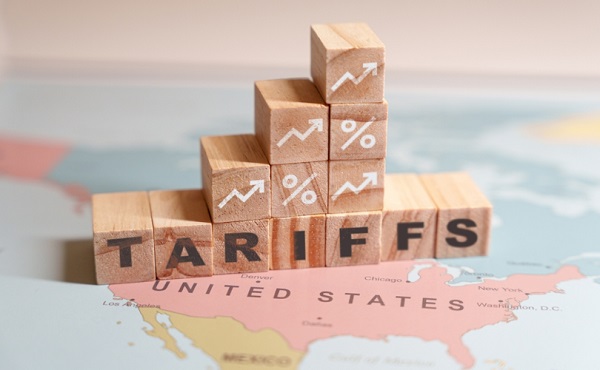
 Business4 hours ago
Business4 hours agoSobering reality check – Trump is right: Canada’s economy can’t survive a fair trade agreement with the US
-
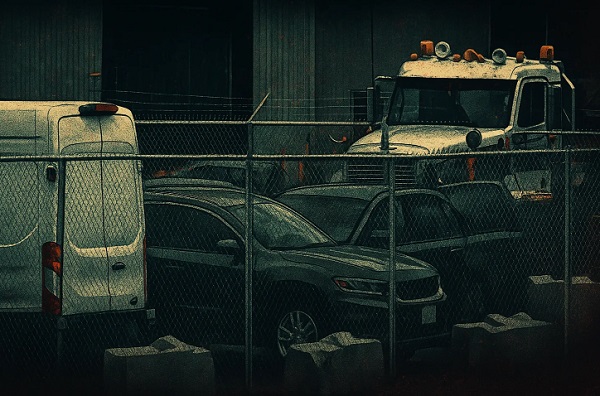
 Crime2 hours ago
Crime2 hours agoMexican Cartels Expanding Operations in Canada, Using Indigenous Reserves as Factory Hubs
-
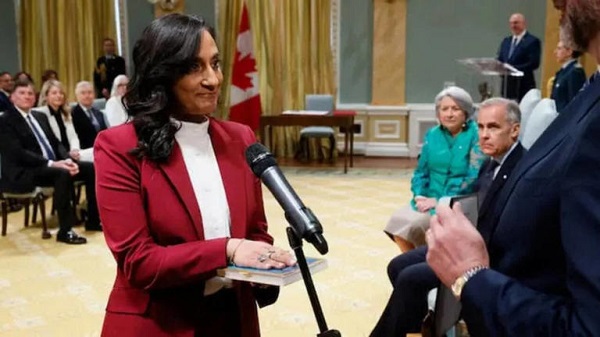
 Fraser Institute6 hours ago
Fraser Institute6 hours agoDeclining stature of foreign affairs minister underscores Canada’s waning influence on world stage
-

 Business5 hours ago
Business5 hours agoOttawa must listen to the West
-

 Alberta1 day ago
Alberta1 day agoAlberta’s Environmental Changemakers Shine at the 2025 Emerald Awards
-

 Banks1 day ago
Banks1 day agoLiberal border bill could usher in cashless economy by outlawing cash payments
-

 National2 days ago
National2 days agoCarney’s leadership style will make or break Canada’s future





